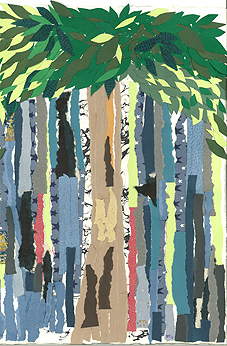Is There an Indian Way of Thinking about Comparative Literature?
E. V. Ramakrishnan
Tagore is aware of the consequences of hegemonic ideologies as his essays on nationalism clearly testify. But he makes a deliberate attempt to reach out to communities beyond his linguistic borders: “To find completely one’s own humanity is among other people is the natural dharma of the human soul and in that is its joy“ (Ibid:215) and “Where the author has experienced in his own being the being of all men, whose writing expresses the pain of every man, that writing has found a place in literature“ (Ibid: 221). Tagore was not bound by false notions of Bangla nationalism, though much of the state-sponsored worship of Tagore fails to realize his radical ideas about human kinship. Any view of global south will have to be founded on visions that go beyond narrow identifications of writers or writings to their native cultures. The context-sensitiveness that we need to cultivate will have to be wary of narrow confines of parochialism and ethno-centricity. Tagore’s emphasis on a participatory space of sharing is central to reinventing Comparative Literature from a non-hegemonic point of view. In the preface to her book, Playing in the Dark: Whiteness and Literary Imagination, Toni Morrison takes a similar view of the social nature of imaginative processes. She says: The imagination that produces work which bears and invites re-readings, which motions to future readings as well as contemporary ones, implies a shareable world and an endlessly flexible language. Readers and writers both struggle to interpret and perform within a common language shareable imaginative worlds (Morrison 1992: xii). These “shareable imaginative worlds“ are what literary works create through metaphors, images and narratives, even as they contest the nature of reality that is constructed by dominant power structures. Legitimation and canonization involve contestations, re-evaluations and rejections. Its rules may not remain the same everywhere. Whether colonialism occasioned a rupture with the past has been the subject of major debates in recent critical theory. The nature of modernity as interpreted by colonialism could not accommodate the indigenous forms of modernity that were firmly rooted in pan-Indian cosmopolitan traditions. In Colonialism, Modernity, Literature: A View from India, Satya P. Mohanty, its editor argues that the colonialist ideological opposition between native tradition and western modernity needs to be critiqued. Citing the example of the critical realism expounded by Fakir Mohan Senapati in his novel, Six Acres and a Third, Mohanty says: “Modernity is thus a layered and a complex phenomenon, according to such writers as Senapati, and analysis of traditional culture needs to be nuanced and contextually sensitive“ (Mohanty 2011:3). In recent comparative criticism there has been much talk of “alternative modernities“ but they tend to replicate the European modernity in reverse. Such binaries will have to be safely buried if we are to monitor the way ideas, images and metaphors travel across cultures. More nuanced cultural analyses of Indian texts will demonstrate how “ ’alternative’ or ’indigenous modernity’ points to a project of historical retrieval and imaginative philosophical reconstruction“ (Ibid: 3). Comparative literary studies could be the site for this retrieval and reconstruction since as a discipline its provenance is the study of textual traditions and their intertextual relations to the making of culture. The critical interpretation of ideologies of colonialism and imperialism is a precondition for the creative evolution of such a discourse of comparative literature. Pages: 1 2 3 4 5 6 7 |
Essays in this Forum
Rethinking the Global South
by Mukoma Wa Ngugi From Indian Literature to World Literature: A Conversation with Satya P. Mohanty by Rashmi Dube Bhatnagar and Rajender Kaur Asia in My Life by Ngugi wa Thiong'o The Global South and Cultural Struggles: On the Afro-Asian People’s Solidarity Organization by Duncan Mceachern Yoon The Fault Lines of Hindi and Urdu by Sanjay Kumar Reframing Colonialism and Modernity: An Endeavour through Sociology and Literature by Gurminder K. Bhambra Varieties of Cultural Chauvinism and the Relevance of Comparative Studies by Tilottoma Misra Literature to Combat Cultural Chauvinism: A Response by Shivani Jha Is There an Indian Way of Thinking about Comparative Literature? by E. V. Ramakrishnan Modernity and Public Sphere in Vernacular by Purushottam Agrawal West Indian Writers and Cultural Chauvinism by Jerome Teelucksingh Oral Knowledge in Berber Women’s Expressions of the Sacred by Fatima Sadiki |
